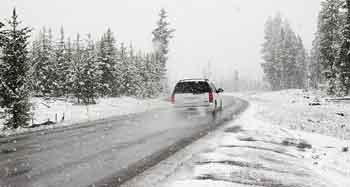What Every Car Owner Must Know While on the Open Road
The open road is a place where you’re free to go wherever you want, whenever you want. As you can imagine, this can be an exhilarating experience, but only if you know how to make the most of it. Regardless of how safe you think you are when driving, there is always room for improvement.
You can take many measures to ensure your safety on the road, from maintaining a functioning vehicle to paying attention to your surroundings. By following these steps, you can improve your ability to drive as safely as possible.
Check Your Vehicle
It is crucial to service your car every so often, whether it is to change the oil, check your brakes, or have an air filter done. It will help keep your vehicle running smoothly and make it less likely for you to have a breakdown while on the road.
It is also recommended that you take the time out of each month/year as a preventive measure and go in for a routine service. You should do these things regularly because if you neglect to do them, they could result in significant issues while on the road.
Additionally, you will save a lot of time and headache by taking your car to a place you are familiar with when it breaks down rather than trying to find a
The main things to check before heading out for any length of time include:
- Car battery.
- Fluid levels.
- Brakes.
- Tires (including the spare).
- Lighting.
You can do these simple visual inspections yourself, but it is worthwhile to book your vehicle into a mechanic if there are any more pressing problems that you should address.
Stay Focused
No matter how fantastic a driver you might consider yourself to be, it would help if you remembered that there are other people on the road. Therefore it is vital to keep yourself focused and aware of your surroundings.
Furthermore, the law gurus at https://bayoucitylaw.com/austin-personal-injury-attorney/ inform that some of the biggest causes of road accidents arise from distracted driving and other road users. This goes hand-in-hand with being aware as you are better able to respond to other road users.
Know Where You Are Going
There are many times when drivers have become hopelessly lost from lack of preparation. Although it seems as though we can rely on modern technology like GPS and mobile phones, there are still many locations that are blind spots. While you may receive a GPS signal anywhere, that won’t help much if you find yourself in a sedan on a road that is becoming progressively more like a dirt track.
Before setting off anywhere, make sure that you have the main route panned out and several options along the way to deviate if necessary. You must be able to read a physical map for this to work, a skill that is incredibly important no matter how technologically advanced you may be.
Decide How Many Hours Per Day You Will Travel
If you know your route, you should plan out how long you will be driving per day. This is crucial to prevent becoming too tired and becoming a hazard to yourself and other road users. Once you have reached your limit, you should find somewhere to pull over and rest up for the night.
This can be a roadside motel, or if you are the adventurous type, you could bring a tent with you and pitch up camp.
Bring All of Your Documentation
It would help if you prepared a pack containing all the documents related to you and your vehicle before heading out. These items could include:
- Insurance
- Owners manual.
- Driving License.
- Medical information (if you have a medical condition).
- Emergency contact numbers.
- Flashlight.
These are only some examples, but they are all items that can be stowed away in your glovebox and left there until needed. It doesn’t take any effort to do this, but it can make a world of difference if they are required.
For instance, if you are crossing state lines and are pulled over, providing the officer with all the information he or she asks for will make the traffic stop far smoother.
When you’re on the open road, a lot can happen. You may be distracted by other drivers who do things like tailgate you, or not use their blinkers, or try to pass you dangerously.
There are also things in nature that can pose a danger, like rocks that have fallen off the mountain or animals crossing the road. But what can you do to protect yourself? The key is being prepared, making sure you have most of what you might need, and knowing where you are heading.

